The Cambio Foundation aims to collect (small) amounts of foreign currency, exchange it, and then use it for charities.
Everyone has banknotes or coins from a foreign country lying around in a desk drawer or cupboard, which they no longer use. This money is usually left over from a vacation, family visit, or business trip.
Many people save this money because they think they’ll use it again on their next visit, but in practice, they only visit that specific country once and no longer need the currency.
Exchanging Foreign Currency
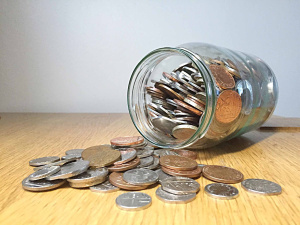 Exchanging currency in the Netherlands is often impossible or not even worth the effort. For example, no bank or exchange office accepts coins anymore, only banknotes. Often, only banknotes of “hard currency” such as the US dollar are accepted. Foreign currencies like the South African rand or the Netherlands Antillean guilder are often worthless to an exchange office.
Exchanging currency in the Netherlands is often impossible or not even worth the effort. For example, no bank or exchange office accepts coins anymore, only banknotes. Often, only banknotes of “hard currency” such as the US dollar are accepted. Foreign currencies like the South African rand or the Netherlands Antillean guilder are often worthless to an exchange office.
Furthermore, people only have a small amount of “hard currency.” For example, just 8 euros in US dollars or 12 euros in Danish kroner. For this amount, it’s almost not worth going to a currency exchange office, if there’s one anywhere near you.
For example, market leader GWK Travelex has only 35 offices in the Netherlands where you can still use “hard currency,” and these offices are often only located in the larger cities.
On the other hand, throwing it away is a waste, because this currency definitely still has value!
The Cambio Foundation can offer a solution for this situation, because we collect small amounts of money from many people. Every year, we sort all this money and then exchange not just one 8-dollar bill, but, for example, 20 8-dollar bills.
We collect not only “hard currency,” but also “soft currency”! We have a large network of (business) travelers who can bring a certain amount of currency to a country once a year and exchange it there or donate it to a local charity.
Exchanging Old Money
We can also still exchange ‘old currency’. Since the introduction of the euro as legal tender in the Eurozone, local currencies, such as the French franc or the Spanish peseta, no longer have any direct value.
However, these currencies still have indirect value. Many currencies can still be exchanged at the Central Bank of that country years after the decommissioning of the currency.
Logically, as a private individual, you wouldn’t go to the Central Bank of Spain in Madrid with 3 euros worth of Spanish pesetas to exchange them, but it is possible.
Here too, the Cambio Foundation ensures that all Spanish pesetas are consolidated and exchanged annually in Madrid with, for example, 100 x 3 euros worth of Spanish pesetas (so 300 euros in total).
Even coins that are assumed to have no value anymore can be converted into ‘hard currency’ by the Cambio Foundation. There are many collectors of special currency worldwide. For example, a 2-euro cent coin might no longer have any value for us Dutch people, but for a hobbyist in a New Zealand village, it’s a gem.
And coins that are no longer of any interest can be converted into money. In these cases, the metals from which the coins are made are even worth money!
Donate foreign currency
Kiva.org
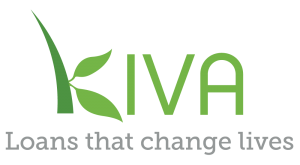 Kiva.org is a non-profit organization that helps entrepreneurs in developing countries through microcredit.
Kiva.org is a non-profit organization that helps entrepreneurs in developing countries through microcredit.
In developing countries, small business owners often have little or no access to credit. Banks are often reluctant to provide loans to small businesses because of the high costs and the effort required to provide these small loans.
The alternative is often for these small business owners to turn to loan sharks, sometimes at interest rates as high as 50% (!).
For these small business owners in developing countries, Kiva.org offers a solution. Kiva.org facilitates small loans, often no more than USD 500, at market interest rates.
Instead of donating, Kiva.org also teaches these entrepreneurs how to manage their money through loans.
The Cambio Foundation tries to convert as many of your donations as possible into banknotes. Approximately 65% of the currency we receive is so-called “hard currency,” meaning it is convertible into banknotes. Examples of hard currency include euros, US dollars, or British pounds.
We invest this money in Kiva.org. Kiva then lends this money to small businesses, so your donation has an impact multiple times over.
The default rate at Kiva.org is approximately 10%. This means that for every US dollar lent out, 10% (or USD 0.10) is lost. This means that with USD 1, we can help nine people nine times over.
Stichting Ambulancewens
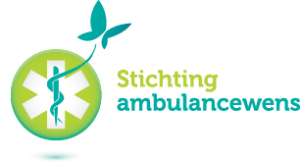 The Cambio Foundation tries to convert as many of your donations as possible into bank transfers. Approximately 65% of the currency we receive is so-called “hard currency,” meaning it can be exchanged for bank transfers. Examples of hard currency include euros, US dollars, and British pounds.
The Cambio Foundation tries to convert as many of your donations as possible into bank transfers. Approximately 65% of the currency we receive is so-called “hard currency,” meaning it can be exchanged for bank transfers. Examples of hard currency include euros, US dollars, and British pounds.
It may sound strange, but we still receive approximately 10%-15% of the currency in the form of euros. We often receive these euros from British, Danish, and American donors.
We donate these euros annually to the Ambulance Wish Foundation.
The Ambulance Wish Foundation helps terminally ill patients fulfill one last wish.
This is usually a seemingly simple wish, such as visiting the beach or forest one last time. Or perhaps attending the wedding or funeral of a loved one.
However, if the patient is terminally ill and is being cared for in a hospital or hospice, transport is a significant risk. Furthermore, regular ambulance services only provide transport for acute and planned care.
The Ambulance Wish Foundation employs volunteers with healthcare experience. The ambulances and equipment are often donated to the Ambulance Wish Foundation, but the foundation itself pays for the fuel for the trips.
With our donation, or rather, yours, we can make a real difference!
You can also donate directly to the Ambulance Wish Foundation via this link.
Support Casper
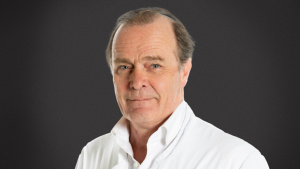
dr. Casper van Eijck
Every year, 3,000 people in the Netherlands are diagnosed with pancreatic cancer. Unfortunately, this number continues to rise.
Every day, 8 to 10 people in the Netherlands die from pancreatic cancer. This makes it the second most deadly form of cancer in our country. Help prevent this. Every donation, large or small, is valuable.
Support Casper is the campaign name of the Pancreatic Cancer Surviving Foundation. The foundation was established in 2015. Its founders are friends and family of people who have died from pancreatic cancer.
Like Professor Dr. Casper van Eyck, the Foundation’s figurehead and a specialist at Erasmus MC for over 30 years, they believe that more research into innovative treatments for the disease is needed.
The Foundation raises funds for groundbreaking clinical research and works to raise awareness of pancreatic cancer. Our mission is to offer effective and affordable treatments by 2030, enabling people with pancreatic cancer to live longer and with a better quality of life.
Casper van Eyck is best known as the club doctor for Feyenoord football club, but also as a regular guest on the television program Vandaag Inside.
If you would like your donation to go specifically to this charity, please indicate this clearly in a note with your donation.
For more information: https://www.supportcasper.nl/nl/
KNGF Guide Dogs
KNGF helps people with disabilities broaden their horizons and maintain their independence, using professionally trained assistance dogs. Finding a good job, dating, going on vacation, or visiting a restaurant can be a challenge for people with disabilities. An assistance dog eases the transition to going outside, allowing for a more fulfilling social life.
A disability can make people feel trapped in their own world. Fortunately, KNGF, with its professionally trained dogs, is able to help these people move forward. KNGF has been doing so for 86 years. To date, KNGF has trained thousands of dogs, dramatically changing the lives of many people.
Literally, worlds have opened up for them. This is also evident from these research results, which show that the quality of life of clients improves from a critically low to an 8.2 thanks to an assistance dog.
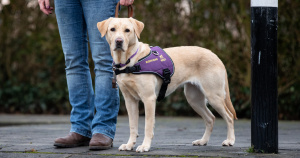 KNGF Guide Dogs investigated the impact of a specially trained dog on the lives of its clients. The quality of life with an assistance dog scored an average of 8.2 among those interviewed, compared to a 4.7 without an assistance dog.
KNGF Guide Dogs investigated the impact of a specially trained dog on the lives of its clients. The quality of life with an assistance dog scored an average of 8.2 among those interviewed, compared to a 4.7 without an assistance dog.
The clients interviewed were people with visual impairments, physical disabilities, (former) uniformed personnel with PTSD (post-traumatic stress disorder), or parents of young children with autism. Experiences from those close to them were also included in the qualitative research.
Local charity
Approximately 30% of the currency we receive as donations is so-called “soft currency.” This currency is more difficult to convert than “hard currency.”
Examples of soft currency include the Colombian peso, the Netherlands Antillean guilder, or the Chinese yuan.
Where possible, we try to exchange this currency locally through our contacts (usually people working in international trade, logistics, tourism, and aviation).
In some cases, the local exchange rate is so poor that the exchange fee exceeds the value of the local currency in that country.
If we find this to be the case, we donate this currency to local charities.
Examples of local charities include food banks, animal shelters, or organizations similar to the Salvation Army.
How to donate to Charity Cambio?
-
- We accept all types of foreign currency, both coins and banknotes.
- This also includes currency that is generally no longer exchangeable.
- You can drop off your donation yourself at the reception desk at the address below. Opening hours are Monday-Friday, 9:00 AM-6:00 PM.
- You can also mail your donation. Please be sure to cover the shipping costs yourself. Please include your information (IBAN and email address) in a note inside the envelope, and we will reimburse the shipping costs.
- If you provide an email address, you will always receive a response. Please be patient, as we are volunteers and process received currency quarterly.
- Send your foreign currency to the address below:
Stichting CambioWeWork BuildingOffice DD.22Weteringschans 1651017 XD AmsterdamNederlandBusiness Registry Number: 80628899
Donations can be dropped off at the reception desk of our collective building Monday through Friday between 9:00 AM and 6:00 PM.
No appointment is necessary.
There is no mailbox outside the building.
